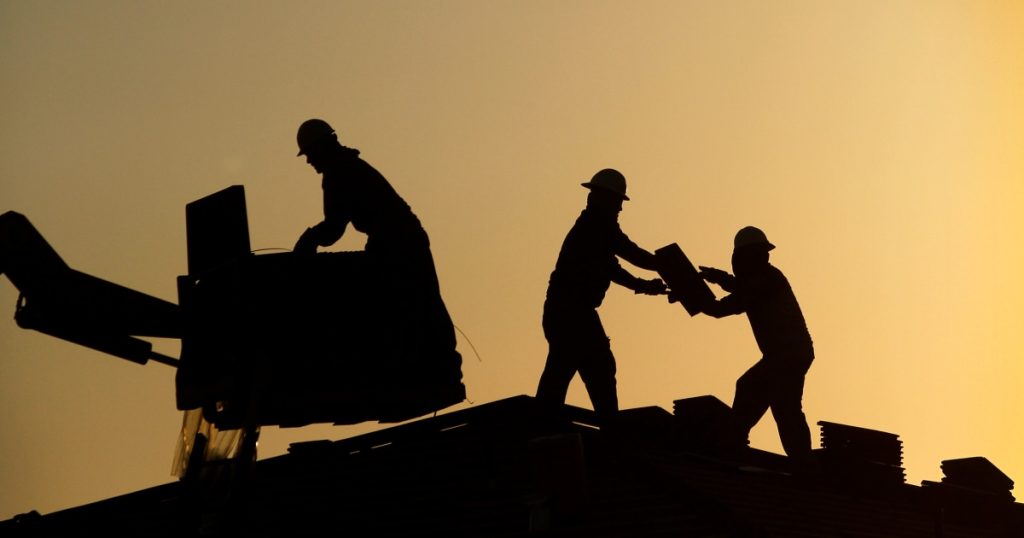The construction industry is facing an epidemic of suicide among workers, with one of the highest suicide rates among professions. An estimated 6,000 construction workers died by suicide in 2022, compared to around 1,000 who died from work-related injuries. The pressures on mental health in the construction industry are increasing due to factors like long hours, harsh working conditions, high-pressure deadlines, and the strain of being away from friends and family. The COVID-19 pandemic has exacerbated these issues, leading to a crisis that industry leaders are working to address.
Justin Azbill, a safety director for a construction firm, shared his experience of almost taking his own life after months of intense pressure during the height of the pandemic. His daughter’s intervention and seeking help from a friend ultimately saved his life. Azbill now travels to construction sites across the country sharing his story, aiming to reduce the stigma around mental health issues in the industry. The construction industry is known for its culture of toughness and self-reliance, making it difficult for workers to be open about their struggles.
The construction boom, driven in part by the semiconductor industry, has put even more strain on workers’ mental health with long working hours, strict deadlines, and the need to live away from home for extended periods. Workers on projects like the $20 billion Intel facility in Arizona often work grueling schedules with no paid vacation time. The toll on workers’ mental health is evident, with many facing issues like depression, anxiety, and substance misuse. The industry is realizing the urgent need to address these challenges and prevent further loss of life.
Efforts to tackle the high rate of suicide in the construction industry include creating safe spaces on worksites for workers to seek help, incorporating mental health discussions into regular meetings, and providing resources for suicide intervention and prevention. Despite these efforts, the industry still struggles with high rates of suicide, with many workers reluctant to seek help due to fears of being perceived as weak or risking their job security. Industry organizations are working on initiatives to promote mental health awareness and provide support for workers in need.
The shortage of construction workers further complicates the issue, as the industry is already facing challenges in recruiting and retaining workers. Companies are beginning to realize that addressing mental health concerns is not only a moral imperative but also a financial necessity. Encouraging a culture of openness and support around mental health issues is seen as crucial to ensuring the well-being of workers and preventing further tragedies. Industry leaders like Shannon Niles and Mike Pugh, who have experienced mental health struggles themselves, now speak out about the need for change in the industry’s approach to mental health.
While progress is being made in raising awareness about mental health issues in the construction industry, there is still much work to be done to support workers and prevent suicides. The stories of individuals like Justin Azbill, Shannon Niles, and Mike Pugh serve as powerful reminders of the importance of prioritizing mental health in the construction industry. Addressing the stigma around mental health and providing resources for those in need are critical steps in creating a safer and healthier work environment for construction workers.


